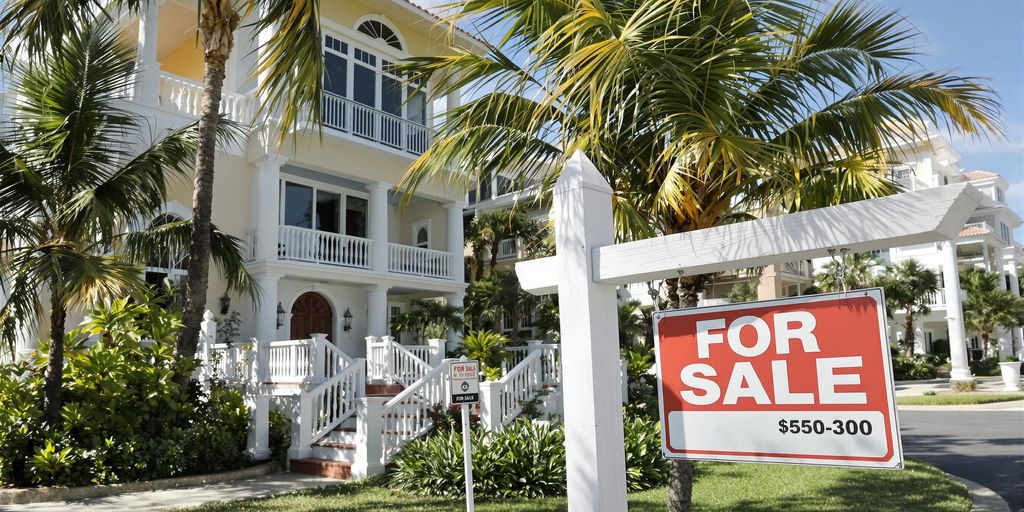Florida’s once-scorching real estate market is showing significant signs of cooling, with rising inventory levels and declining prices becoming increasingly common across the state. This shift follows a period of unprecedented growth fueled by pandemic-era demand, leading to affordability challenges and a market correction.
Inventory Surge and Price Declines
Across major Florida metropolitan areas, the number of homes for sale has surged to multi-year highs. In the Tampa-Saint Petersburg-Clearwater metro, active listings in June were up 28% year-over-year, reaching the highest point in data going back to 2016. Similarly, the Orlando-Kissimmee-Sanford area saw a 34% increase in active listings, and Cape Coral-Fort Myers experienced a 30% jump. This surge in supply, coupled with waning demand at current price points, is forcing sellers to reconsider their pricing strategies.
- Key Takeaways:
- Inventory levels are at multi-year highs in major Florida metros.
- Homes are staying on the market longer, with days on market increasing significantly.
- Prices are showing a downward trend, particularly for condos in some areas.
Factors Driving the Slowdown
Several factors are contributing to this market recalibration. High mortgage rates, hovering around 7-8%, have made homeownership less affordable for many potential buyers. This, combined with the lingering effects of the pandemic-driven buying frenzy, has led to a situation where demand has softened considerably. Additionally, rising insurance costs, particularly in coastal areas, and general economic uncertainty are making buyers more hesitant.
Regional Market Performance
While the entire state is experiencing a slowdown, some areas are more affected than others. West Palm Beach saw a 4.9% year-over-year drop in median home sale prices, while Jacksonville experienced a 3.1% decline. Reports indicate that markets like Cape Coral are facing significant price drops, with some homes selling for substantially less than their purchase price just a few years ago. This is partly attributed to the increased frequency and intensity of hurricanes, which have led to property damage and higher insurance premiums, impacting the overall desirability and cost of homeownership.
A Market Correction, Not Necessarily a Crash
Experts suggest that while the market is undergoing a significant correction, it may not be a repeat of the 2008 housing crash. The current situation is driven by different factors, including higher interest rates and increased inventory, rather than the widespread subprime lending issues of the past. However, areas that experienced the most rapid price appreciation are now considered at higher risk for more substantial price declines. Buyers are gaining more leverage, and sellers are being advised to be realistic with their pricing expectations to attract offers in the current environment.
Sources
- A look into Florida real estate market, home sales slowdown, WUSF.
- Home Prices Drop in 14 Major U.S. Metros, Including Parts of Florida and Texas, As Buyers Gain Upper Hand, Redfin.
- Homes for Sale in Florida’s Biggest Markets Rise to Highest in Many Years and Languish as Demand Fizzled |
Wolf Street, Wolf Street. - 5 Popular Florida Housing Markets Are at High Risk of Price Crash, Norada Real Estate Investments.
- Florida City Real Estate Market Crashes After Being Super Hot A Few Years Ago — Costs of Climate Change –
CleanTechnica, CleanTechnica.


